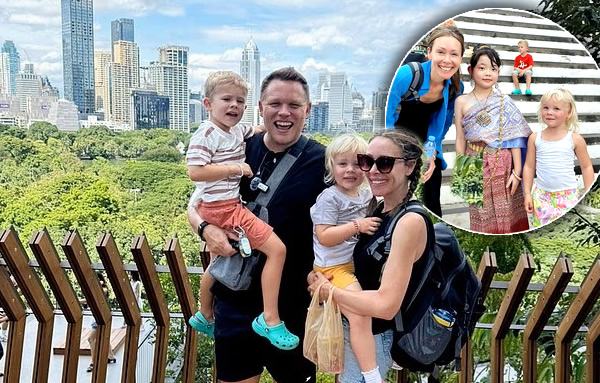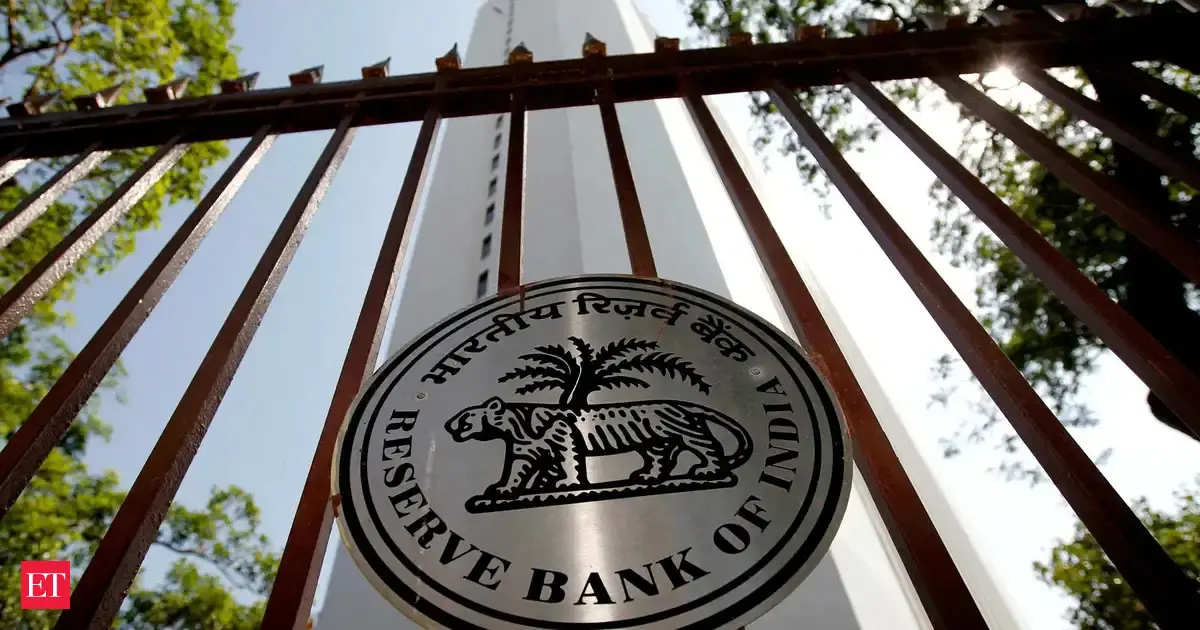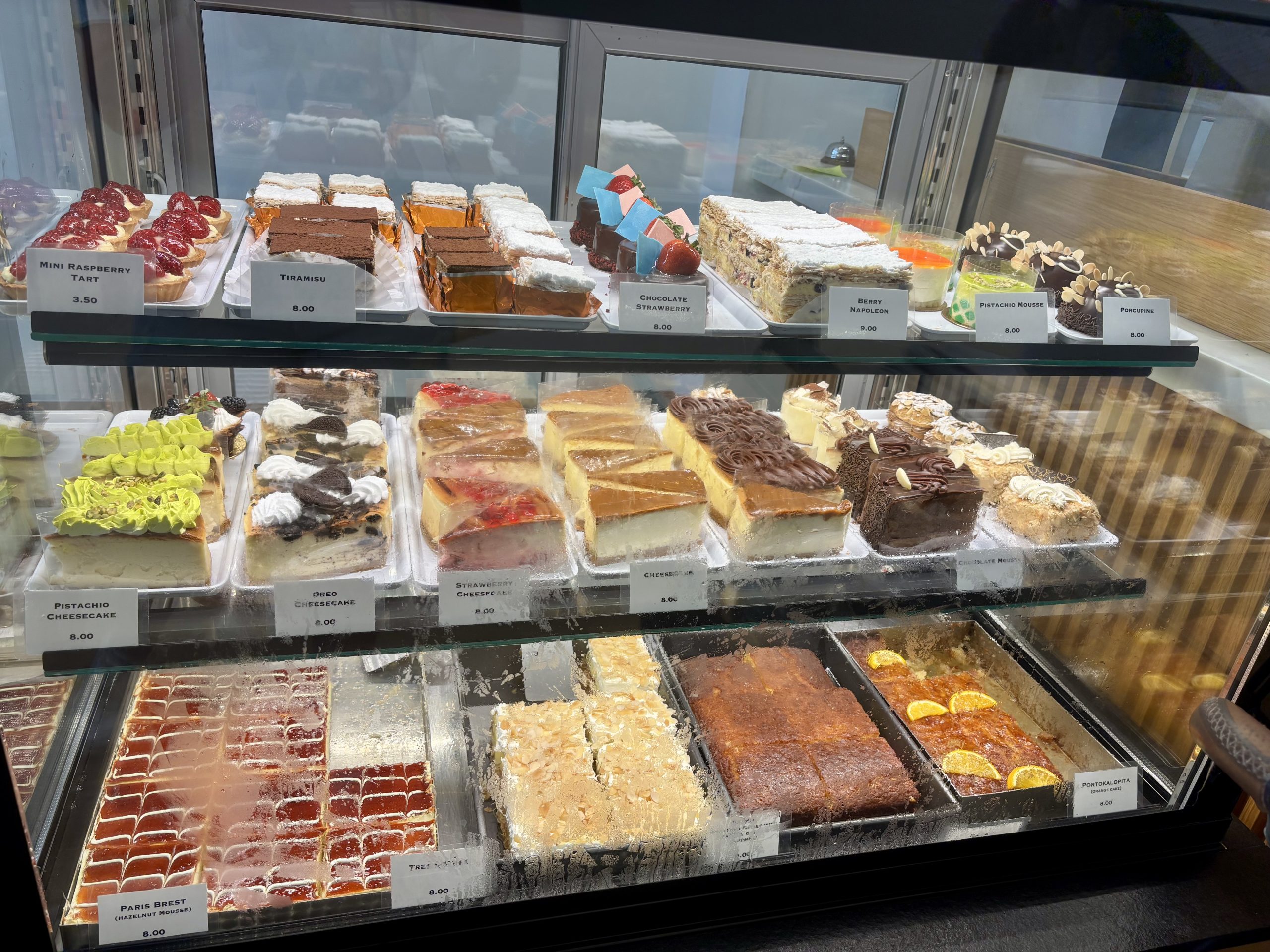UK family begin getaway from traditional school experiment for their kids in Bangkok on two year tour
By James Morris And Son Nguyen
Copyright thaiexaminer

A British couple have pulled their kids out of school to embark on a bold year-long journey across Southeast Asia—ditching desks for tuk-tuks. They say five is too young for classrooms and believe real-world adventure offers a deeper, richer kind of education.
A British couple have ditched the school run for tuk-tuks and temples, taking their 5-year-old son and 3-year-old daughter on a bold, year-long journey through Southeast Asia. James Humphries-Stone and Hayley Griffiths say traditional education is too rigid, too early, and too dull for young minds. Instead, they’ve swapped classrooms for culture, aiming to teach their children through real-world experiences, not worksheets. Despite having no academic qualifications themselves, the couple built a thriving business—and now believe learning should be broader, bolder, and far more colourful. After Bangkok and Chiang Mai, their travels will continue across the region before heading to Australia for a year.
A British couple have turned their backs on traditional schooling and set off on a bold year-long journey across Southeast Asia with their two young children. James Humphries-Stone, 38, and Hayley Griffiths, 42, from Swanwick, Derbyshire, say they are rejecting the classroom because their children are “too young to sit at a desk.”
Instead, they are embracing a form of alternative education called “world schooling,” where learning happens through real-life experiences, cultural immersion and daily adventure.
The couple sold their car, rented out their home, and packed their lives into backpacks. Their children, Stanley, five, and Margot, three, are now discovering the world instead of spending their days inside a classroom.
Family begins a year-long journey across Southeast Asia teaching children through travel and real-life
The family began their journey in Bangkok and plans to spend the next twelve months travelling through Chiang Mai, Laos, Vietnam, Cambodia, the Philippines, Malaysia, and Indonesia. Eventually, they aim to continue on to Australia, where even more learning opportunities await.
“We believe five is far too young to be behind a desk all day,” said James. “Children at that age should be moving, exploring, and learning through play. Sitting in rows and staring at textbooks isn’t what we want for our children.”
He added that they already noticed how naturally their kids absorb information from their surroundings. “We teach Stanley to count using money at the market, not blocks or worksheets. It sticks better.”
Importantly, the family are not treating this as a holiday. They insist this is not a break from education—it’s simply education done differently. Every destination becomes a classroom, every interaction a lesson. From tuk-tuk rides in Bangkok to forest walks in Chiang Mai, Stanley and Margot are constantly learning through sights, sounds, languages, and local culture.
“We’ve already seen them grow more confident and curious,” said Hayley. “They ask questions all the time, and now they get real answers, not just lines from a book.”
Children learn through observation and adventure at each destination rather than a classroom routine
At Lumpini Park in Bangkok, for example, the children watched monitor lizards bask in the sun, studied exotic plants, and counted dragonflies. These moments, according to James, are richer than anything they’d experience in a reception class.
“In the UK, they’d learn about reptiles in a textbook,” he said. “Here, they’re three feet away from one. That’s unforgettable.”
Although many parents would be anxious about disrupting their child’s early schooling, James and Hayley believe that the UK system is fundamentally flawed.
“I think it’s outdated,” said James. “Children are being funnelled into a system that was built for the industrial era. It doesn’t fit the modern world. It’s rigid, test-focused, and too quick to label.”
He also questioned the very purpose of early education. “We don’t think a five-year-old should be trained to conform,” he said. “In many Scandinavian countries, kids don’t start formal education until they’re seven. Why are we rushing ours?”
Moreover, both parents speak from experience. Neither James nor Hayley followed a conventional academic path. Each left school with just one GCSE, yet today they own a successful business and have designed a life that prioritises freedom and flexibility.
“We’re living proof that the traditional route isn’t the only way,” said Hayley. “We didn’t tick the boxes, but we still built something meaningful.”
Parents draw on personal experience to justify world schooling and critique a conventional education
Not surprisingly, their decision has raised eyebrows. Some relatives have expressed concern, and strangers online have criticised the move. However, James and Hayley are unfazed.
“Yes, we have critics,” James admitted. “But we also have a growing network of families doing exactly the same thing. Many of them are former teachers. That says a lot.”
World schooling is growing in popularity as more families question the effectiveness of conventional schooling. According to James, many parents feel forced into a system that doesn’t align with their values.
“We’ve met families from Germany, the US, and Australia doing the same thing,” he said. “This isn’t some reckless escape—it’s a growing movement based on intention, not avoidance.”
Additionally, the family limits screen time, avoids excessive television and encourages hands-on interaction with the world around them.
“We want them to feel, smell, hear, and touch what they’re learning,” said Hayley. “That’s how real knowledge forms.”
In their view, buying fruit at a local market offers more value than memorising spelling lists.
Family prioritises hands-on learning and global interaction over digital screens and traditional learning
Beyond basic subjects, James and Hayley believe they’re giving their children something far more important: perspective.
“They’ll grow up with a global mindset,” said James. “They’ll understand other cultures, other lives. That can’t be taught in a classroom.”
The couple also hope to instil empathy and adaptability by exposing their children to different ways of living.
Despite the challenges—language barriers, long travel days, unfamiliar environments—the couple remain committed.
“We’ve traded comfort for connection,” said Hayley. “Our kids will come away with stories, confidence, and curiosity. That’s worth more than gold stars.”
Looking ahead, the family plans to continue shaping their own curriculum through experience. In Australia, they’ll explore the Outback, swim in the Great Barrier Reef, and learn about Indigenous culture. Every destination adds new depth to their learning journey.
“It’s not about avoiding school,” said James. “It’s about redefining what school looks like.”
Young UK family prepare to take the plunge by selling up and moving to live in sunny Thailand for good
Australian family pack up and move life to Phuket. Natalie and Fred fled sky-high rent in Sydney seeking home ownership
For now, while Stanley’s peers begin phonics and practice handwriting, he’s learning currency conversion, identifying tropical birds, and navigating a world map. Margot, just three, has already picked up Thai greetings and shows an early fascination with insects.
Ultimately, James and Hayley believe their children will return home better prepared—not just for tests, but for life.
“We’re not raising students,” said James. “We’re raising thinkers, explorers, problem-solvers. That starts now, not in a classroom.”
Join the Thai News forum, follow Thai Examiner on Facebook here
Receive all our stories as they come out on Telegram here
Follow Thai Examiner here
Further reading



